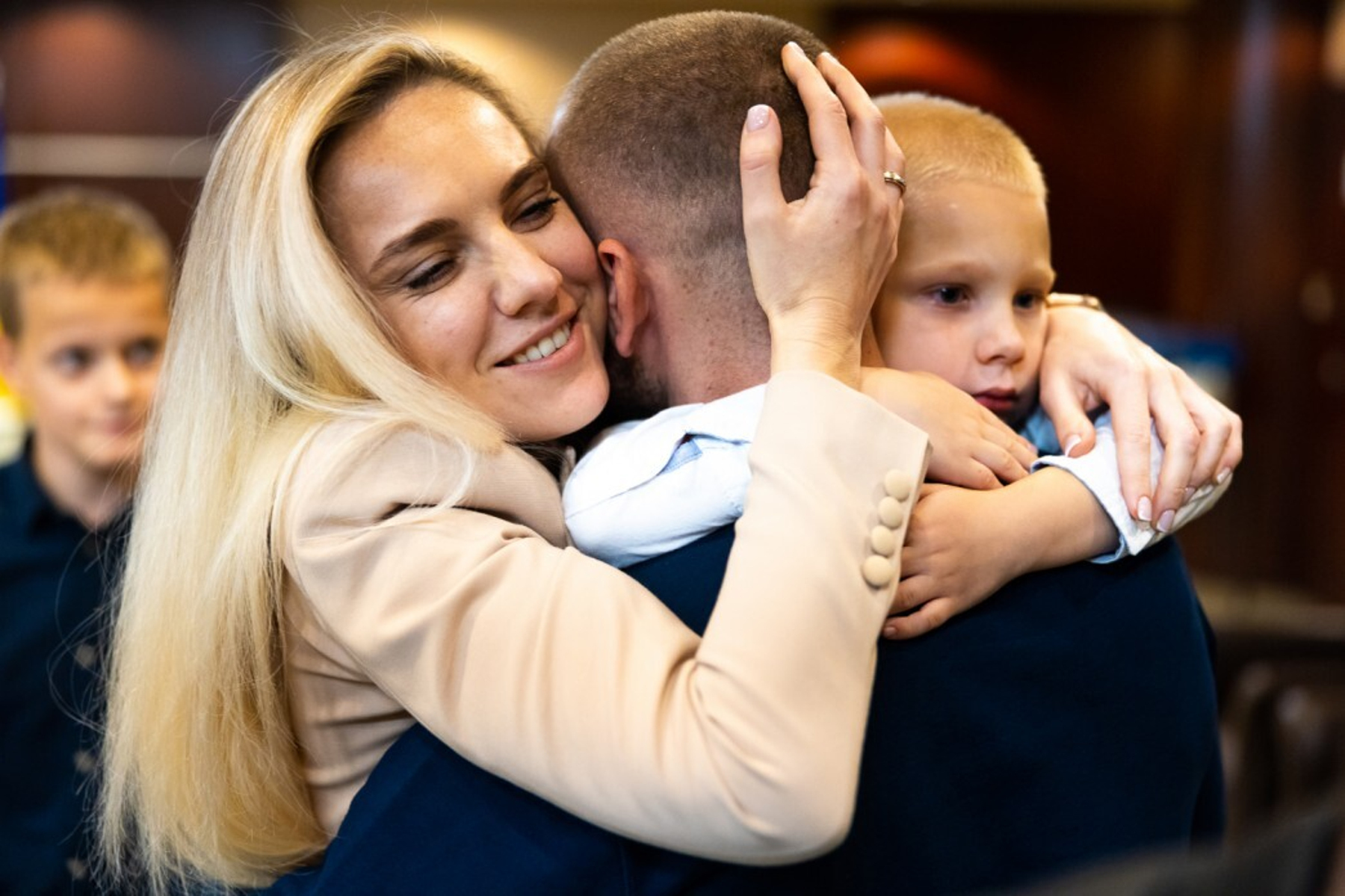230 Ukrainian POWs return home from Russian captivity in largest prisoner exchange in full-scale war

Over 200 Ukrainian prisoners of war (POWs) were returned from Russian captivity in the largest prisoner exchange since the start of Russia’s full-scale invasion, the Coordination Headquarters for the Treatment of the Prisoners of War reported on Jan. 3.
The previous prisoner swap between Ukraine and Russia took place in August last year, after which, according to Ukrainian officials, Moscow refused to continue the practices in an alleged effort to turn Ukrainian families of POWs against their own authorities.
The 230 prisoners freed on Jan. 3. included personnel from Ukraine’s Armed Forces, Territorial Defense Forces, National Guard, border guards, and a police officer, as well as six civilians, the headquarters wrote.
Among those returned were those who had the official POW status, confirmed through the International Committee of the Red Cross, and those Ukrainian personnel who were considered missing.
Most returned POWs are privates and sergeants. Five women were freed during this prisoner swap, according to the headquarters.
One of the returned women is a combat medic from Ukraine's 36th Marine Brigade.
"While in captivity, she spoke Ukrainian on principle. The Russians took her away several times as if for exchange, but eventually returned her to the place of detention," the organization added.
The freed POWs also reportedly include seven defenders of Zmiinyi (Snake) Island, a musician of a military band, a servicewoman who was captured by the Russians while on maternity leave, national guardsmen who were captured while performing their duties at the Chornobyl Nuclear Power Plant a civilian teacher from Luhansk and defenders of Mariupol.
The headquarters thanked the United Arab Emirates for its "active participation in carrying out this exchange."
Ukrainian officials said in December that Russia held at the moment at least 3,500 Ukrainian POWs, although the number was thought to be higher. Russia and Ukraine held numerous prisoner exchanges in 2022, but the number decreased in 2023, with the previous instance occurring on Aug. 7.
Ukrainian authorities said that Russia had decided on a freeze on prisoner swaps, possibly to try to destabilize Ukrainian society.
Several families of Ukrainian POWs told Politico that after months of silence, they suddenly received calls from their family members in Russian custody, in which the POWs encouraged their families to protest against the government, claiming that "Kyiv does not want to take us back."
President Volodymyr Zelensky commented on the Jan. 3 prisoner swap, saying that despite a long halt in the exchanges, "there was no pause in the negotiations."
"At every international meeting that can be of help, we raise the topic of the return of our captives. And we will continue working to bring back all our people," Zelensky said in his evening video address.
The president thanked all those involved in the exchange and "every one of our soldiers on the front lines who take the occupiers prisoner and replenish our exchange fund."
"The more Russians we capture, the more effective the exchange negotiations will be."
Throughout the war, Russia's military has been repeatedly accused of mistreating Ukrainian POWs and violating international humanitarian law. Recent reports indicate that it has conscripted tens of thousands of Ukrainian citizens in the occupied regions of Ukraine, forcing them to fight against their own country.
Multiple videos have been published on social media showing tortures and brutal executions of Ukrainian POWs by Russian soldiers, prompting investigations by Ukrainian law enforcement.
According to Ukrainian officials, Russian forces also used Ukrainian POWs as human shields during combat near Robotyne in Zaporizhzhia Oblast, and it might be a systematic practice among Russian troops.















